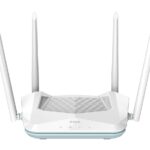Popularity of branded masks may come back to bite SMEs
A New Zealand health and safety company is warning employers to avoid issuing workers with branded cloth masks.
A health and safety company is warning employers to avoid issuing staff with branded cloth masks. While they’re good marketing and may meet current Government guidelines, they are not enough to keep the team safe from Omicron.
Jason Braithwaite, GM of New Zealand health and safety training provider Besafe Training, said employers are responsible for the health and safety of their staff on-site, and issuing PPE equipment that is not fit for purpose could have serious implications.
The ambiguity, and potential unreliability, of public health advice was brought to light recently when Canada Post insisted an employee wear the company’s branded cloth mask. The worker was stood down after he insisted on using an N95 grade mask to protect his wife, who has pre-existing conditions.
“If your staff were working at heights, you wouldn’t issue them with a poor quality harness. The same applies to the masks. Besides the fact that staff members are more likely to get ill, even seriously ill, your business will suffer when half your team is off sick. There is also the risk of an employee grievance or potential prosecution.”
Braithwaite says his company has had to review the use of their branded cloth masks to align with the current recommendations.
“It’s a great bit of branding, and you think you’re doing the right thing, but if you want to protect your team and your business, toss the branded cloth masks and go with an N95 grade mask.”
He advised companies that want to treat Omicron as a workplace hazard to:
1. Use good quality safety equipment
“The evolving nature of the pandemic has resulted in oscillating messaging over the last couple of years, but the world has steadily moved towards best practice. I don’t doubt that it won’t be long before N95 becomes the standard. It is better to equip your staff with the best when it comes to protecting them, your business and your customers,” Braithwaite said.
2. Train staff in how to fit the mask
“Like any other health and safety measure, your staff should be trained in best practice, and that includes fitting a mask properly. Even an N95 mask that has been poorly fitted will fail.”
3. Monitor maintenance
“You can wash disposable surgical masks or implement a rotation system if using N95 masks. New Zealand research suggests that washing surgical masks saves money, helps the environment and is still ten times better than a triple-stacked cloth mask. Ensure your staff are cleaning and maintaining their equipment.”
Braithwaite said that companies could take a guidelines approach or a standards approach but should adopt a standards approach with PPE gear because it is a health and safety issue. “You can aim to be compliant, or you can aim to be a leader and do a job that will get the better result.”
For more information visit https://besafetraining.co.nz/






